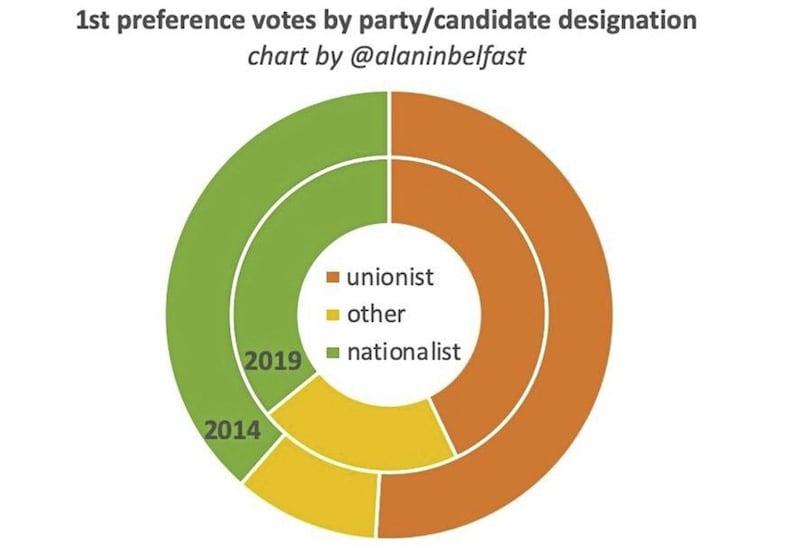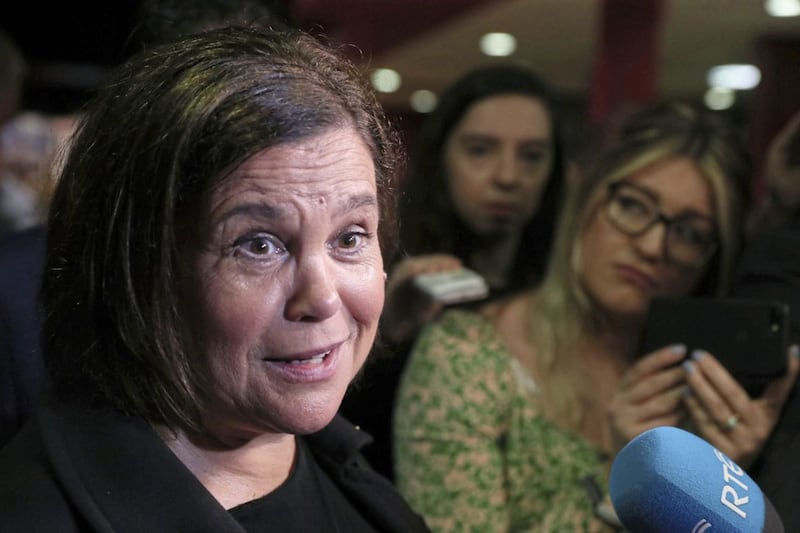UNIONISM's share of the first preference vote in the European elections has fallen by more than a quarter over the past 40 years, the latest poll results confirm.
In the first EU election in 1979, the unionist bloc secured a 58.4 per cent share of the vote, however, based on the results of last Thursday's European election, the portion of votes won by nominally unionist parties stood at 42.8 per cent.
The decline is thought to reflect both demographic movement and changes in voter preference.
But while unionism's overall decline has been pronounced and has accelerated in recent years, a commensurate increase in the nationalist vote has been less marked.
Read More
- 'History made' as north returns two anti-Brexit MEPs
- Sinn Féin fighting to retain seats in Republic's three EU constitituencies
- Former SDLP leader Mark Durkan 'does not regret' Fine Gael run for Dublin seat despite defeat
In 1979, nationalist parties gained just over 30 per cent of the first preference votes compared to the 35.9 per cent secured last Thursday.

The latest European election also saw a surge in support for the centre ground, with Alliance in particular enjoying growth from a 7.1 per cent first preference share five years ago to 18.5 per cent last Thursday.
Alliance leader Naomi Long was elected the party's first ever MEP, while the DUP's Diane Dodds and Sinn Féin's Martina Anderson successfully defended their seats.
Commentator Chris Donnelly told The Irish News there was no comparable increase in the nationalist vote mirroring the decline in the unionist bloc.
"While unionism is losing in terms of representation it doesn't mean nationalism is winning," he said.
"Unionists are now a minority community alongside nationalists and those not particularly bothered about the constitutional status of Northern Ireland."
Mr Donnelly said there was growing support for centrist parties – "those parties that don't define themselves by the constitutional question".
"Fifteen years ago Alliance would have been viewed as a moderate unionist party," he said.
"These days, however, it's a party populated by many people from nationalist backgrounds, some of who speak Irish and would be broadly supportive of Irish unity."
Read More
- Jim Allister refuses to shake Martina Anderson's hand
- Naomi Long's East Belfast successor may not even see inside Stormont
- Mary Lou McDonald reflects on 'challenging weekend' for Sinn Féin
He said he believed "very many nationalists" gave Naomi Long their first preference vote last Thursday but the Slugger O'Toole contributor rejects the notion of 'loaned votes'.
Mr Donnelly said both unionist and nationalist parties needed to modify their pitch to appeal to the emerging middle ground.
"Whether a party is advocating Irish unity or the status quo, they need to be increasingly aware of the third bloc," he said.
"Those interested in either preserving the union or making the case for unity need to consider how their policies, actions and even vocabulary are received by those they wish to persuade and connect with outside of their respective communal base."








